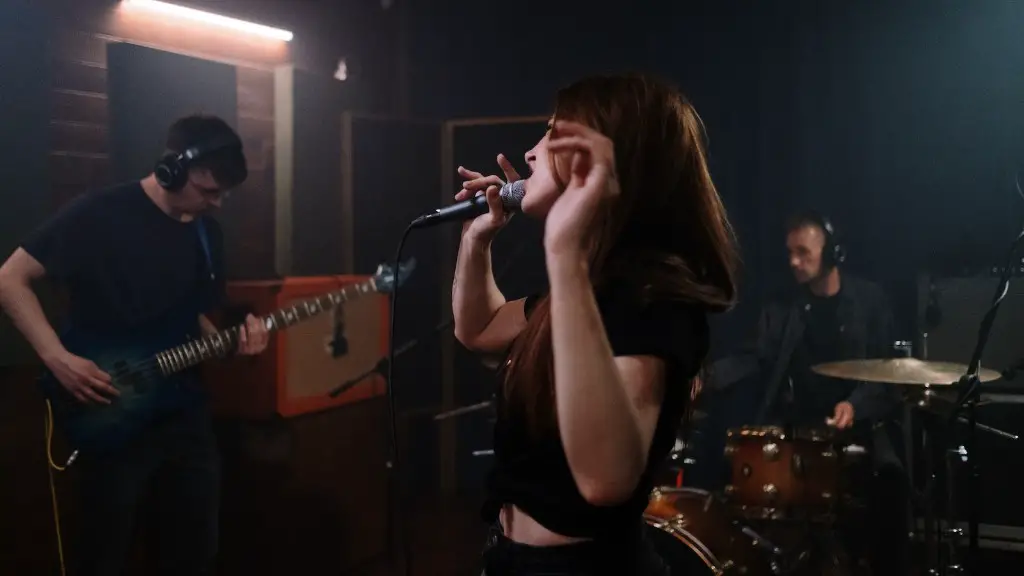Learning how to sing on pitch is an important skill for any singer, especially beginners. There are a few things you can do to improve your ability to sing on pitch. First, make sure you are breathing properly. Good breath support is essential for good singing. Second, relax your body and face. tension in your muscles will make it harder to sing in tune. Finally, practice regularly. The more you sing, the better you will become at singing on pitch.
The most important thing for beginners to do when learning how to sing on pitch is to find a starting note. Once you have a starting note, you can begin matching your pitch to that note. You can find your starting note by humming or by using a pitch pipe. Once you have your starting note, practice matching your pitch to it. You can do this by singing up and down the scale or by trying to hold a note for as long as possible. The more you practice, the better you will become at singing on pitch.
Is it easy to sing on pitch?
Singing on pitch can be challenging for some people, but it doesn’t have to be. If you know your vocal range and can control your voice, you’re already on your way to success. Developing aural awareness and being able to visualize your pieces will help you even more.
1. Learn to match pitch with a digital tuner.
2. Set the tuner to your target note (eg A).
3. Choose a note in your comfortable singing range.
4. Listen to the tuner play the note. It will probably be a very simple ongoing “tone” or electronic beep.
5. Hear the note in your head.
6. Sing the note.
How long does it take to learn to sing on pitch
It takes time to get comfortable with your voice. You’ll need at least a year to learn a variety of vocal techniques and to sing like a professional. Just never stop singing as it’ll be your determination that will help you achieve your goals.
Pitch ear training is a great way to improve your ability to identify pitches. By playing the same note over and over and singing or humming it, you can train your ear to recognize the sound of the note and associate it with its name. The more clearly you can hear the note in your head, the better you’ll become at identifying pitches.
Why can’t Some people sing on pitch?
There are many reasons why a vocalist may have difficulty singing on pitch, but the most common reason is due to the vocal cords (or folds) not functioning correctly. This can cause the voice to sound flat and produce a less than perfect tone. If you’re looking to improve your own singing ability and learn how to sing on key more consistently, be aware that it is a complex task for the vocal cords and may take some time and practice to perfect.
It is important to match pitch when singing, as this ensures that you are singing in tune with the music. To do this, you must sing the same pitch as the note you are playing as a reference. For example, if you play a C4 on the piano, you would then sing a C4 to match pitch. You can use a chromatic tuner to help you determine which pitch you are singing.
Can a person be taught to sing?
This is an interesting topic. I would like to learn more about it.
This is a good way to focus on hearing your sound. By focusing on hearing your sound in the middle of your forehead, you will be able to more easily hear if you are in tune or not. The more you focus on hearing your sound, the clearer you will be able to hear yourself. This will also help you to better control your voice so it is always in tune.
Why can’t I sing high notes
If we want to sing a higher note, we need to stretch our vocal cords out further. And the longer the cords are stretched, the faster they’ll vibrate. This makes it possible to sing a higher note. The farther apart our vocal cords vibrate, the higher the note we can hit.
This is an exciting new development in the world of music! Absolute pitch, or the ability to identify a note without any reference, is a highly sought-after skill among musicians. While it has traditionally been thought that this ability is largely genetic, the new study from UChicago suggests that it can be acquired through training. This is great news for those of us who are not born with absolute pitch, but who are passionate about music and willing to put in the time to learn.
What is the fastest way to learn to sing?
There are many different ways to learn how to sing. You can join a school or community chorus, watch tutorials online, or take voice lessons. Each method has its own advantages and disadvantages. By far the best way to learn singing, however, is through voice lessons. Voice lessons will teach you the proper technique and vocal exercises you need to improve your singing voice.
While thirty minutes is a good start for most people, it is possible to over-practice and put strain on your vocal cords. Remember to take breaks during the day to help build up the vocal stamina needed for more practice later on.
Why do I sound flat when I sing
If you’re struggling with singing flat, try opening up and singing with a more open mouth to see if this helps correct your pitch issues. You don’t want to close your lips too tightly because it limits the airflow and makes it harder to produce good sound.
How rare is perfect pitch, and is it genetic?
A commonly cited number is that approximately one in 10,000, or 01% of people, are thought to have perfect pitch. However, it is hard to determine the exact prevalence of perfect pitch as there is no standard definition of the condition. Some experts believe that perfect pitch is largely genetic, while others believe that it can be acquired through training and practice.
Can I sing if I have a terrible voice?
Singing is a skill that can be improved over time with practice. You don’t need a voice teacher to improve your skills, but working with a voice teacher can help you make faster progress.
To find your vocal range, you’ll need to go to a piano or guitar and find Middle C. This is C4 on the piano, and the C on the 1st fret of the B string on guitar. From there, you’ll need to mark the lowest note you can sing, and the highest note you can sing. Once you have those two notes marked, you can write out your vocal range.
How do I know if I sing good
It is important to record your voice in order to get an accurate idea of how you sound to others. Your sinus cavities make your voice sound different in your head than it actually sounds to others. Therefore, the best way to hear yourself is through a recording. Use a voice recorder or the recorder app on your smartphone and sing at least 30 seconds of a tune.
If you want to improve your singing voice, one of the most important things you can do is to practice speaking the words you want to sing. This will help you to form the sounds correctly and project your voice more effectively. Make sure to practice in a place with good acoustics so you can hear yourself clearly.
Conclusion
The best way to learn how to sing on pitch is to find a good singing teacher. This is the most effective way to learn, as the teacher can give you feedback on your progress and help you to correct any mistakes you might be making. There are also a number of websites and apps that can help you to learn how to sing on pitch, and these can be a good option if you are not able to find a singing teacher in your local area.
If you’re a beginner when it comes to singing, it’s important to be able to sing on pitch. This means that you’ll want to find a starting note and then be able to sing notes that are in tune with that starting note. There are a few different ways that you can find your starting note. You can either use a pitch pipe or a piano. Once you have your starting note, you can then use a variety of techniques to help you stay on pitch. These techniques include humming, checking your pitch, and singing with a partner. With a little practice, you’ll be able to sing on pitch in no time!


